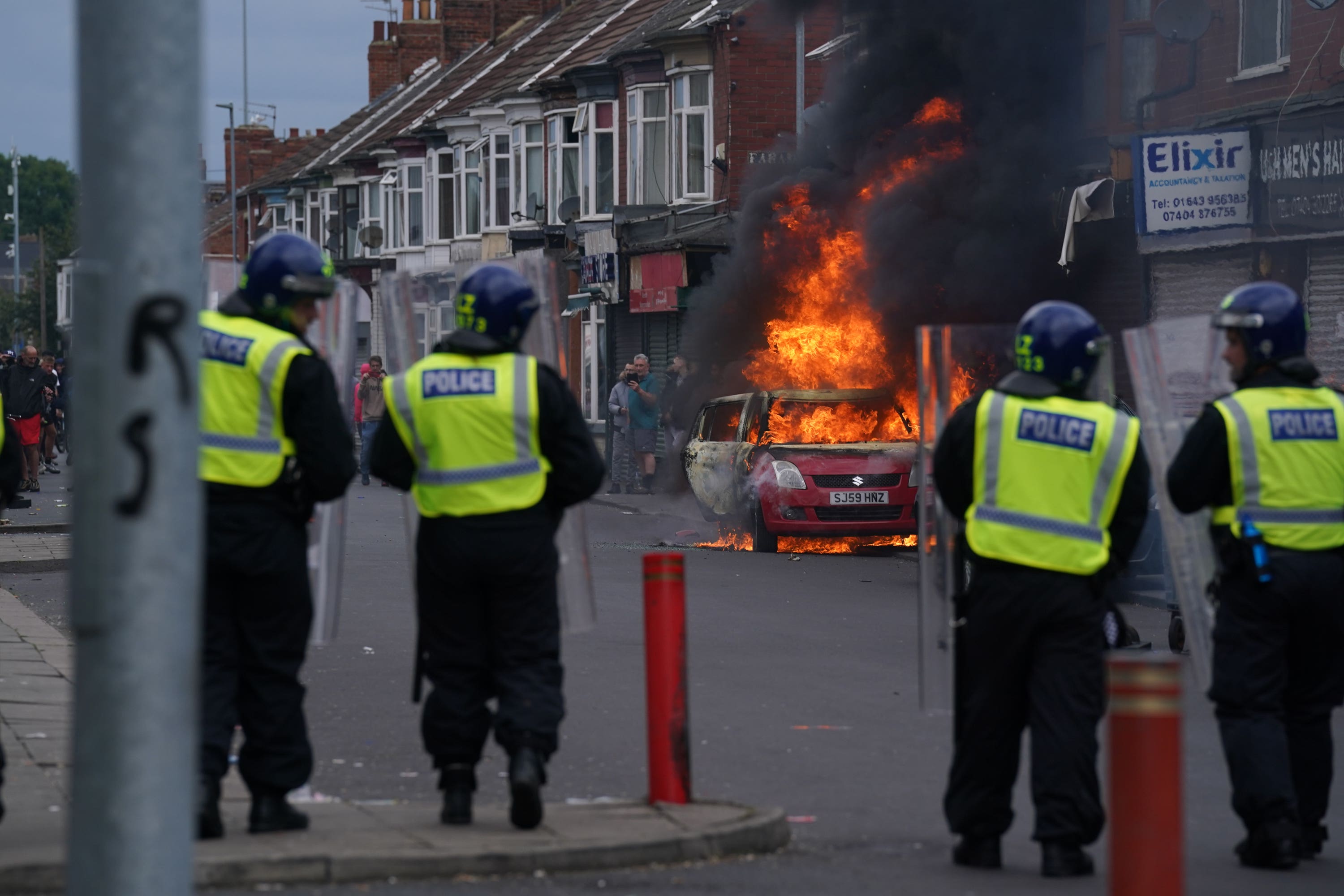How likely is it that the army will be called in to deal with the riots?
As Nigel Farage leads calls for troops to be sent in to help quell the outbreak of unrest across Britain, Sean O’Grady asks why he is so keen on the idea – and whether it would actually help


The recent riots have prompted demands that parliament be recalled, and, rather more radically, that the army be called in to restore law and order on the streets. Nigel Farage has led the calls to at least debate getting the military involved. In a statement, the leader of Reform UK argued: “That so many police officers have been injured trying to keep the peace is shocking, and we should not discount the use of the army if the situation were to deteriorate further.” Farage claims that this would “quell the riots”.
Would bringing the army in work?
Well, it seems likely that the average far-right extremist wearing a balaclava and an England flag would think twice about hurling a rock or a firework at a line of fully armed infantry, and a few warning shots in the air would disperse even the most belligerent of the “patriots”. Indeed, being confronted with tooled-up representatives of the very armed forces the “patriots” revere might confuse them so much that they wouldn’t know whose side they were supposed to be on, though this hasn’t previously mattered. They certainly couldn’t attack the troops for “two-tier” soldiering.
Does Farage want martial law to be declared?
Not before he becomes prime minister and uses such powers to his own ends. Even in wartime, the UK hasn’t been subjected to martial law, which doesn’t have a basis in any existing statute law, royal prerogative or other constitutional doctrine. But the government could declare a “state of emergency”, and the armed forces could at any time act “in support of the civilian powers”.
In 2021, the Ministry of Defence and the chiefs of the defence staff stated that they “can support the civil authorities to deal with events such as natural hazards, major incidents or malicious attacks in the UK and the crown dependencies”. So this includes such activities as, for example, driving fire engines during strikes in 1977 and 2002-3, helping with the aftermath of flooding, and assisting with the vaccine rollout during the pandemic. Around 80 fuel tankers and army drivers were put on standby to transport fuel for essential services such as ambulances in the fuel protests in 2000.
It has been a couple of hundred years since British forces were last required to “read the riot act” (literally) and quell civilian riots, usually with bloodshed and abiding notoriety. Such instances included the anti-Catholic Gordon riots of 1780 and the massacre of political protesters at St George’s Fields, south London, in 1768, and again at “Peterloo” in Manchester in 1819. But that was before Britain developed a formal police force. Anyway, the Riot Act of 1714 was repealed in 1973. Probably just as well.
Would there be any downsides?
Lots. Most importantly, this is not what the British army is for, and it’s not something its soldiers would be likely to wish to do – though they are always, in the final analysis, at the disposal of a democratically elected government. They were, it is true, deployed “in support of the civil authorities” in Northern Ireland for decades during the Troubles, but that was a form of civil war, and it was arguably more like their traditional and historical deployment during the time of the British empire, such as in Cyprus and Kenya.
More to the point, the army doesn’t have the skills to deal with low-level, though serious, civil disturbances such as these, and the lethal use of weaponry would be a grave matter indeed – soldiers should not be put in the position of having to fire on unarmed British civilians. It would only take one panicked squaddie to inflict a tragedy on a nation. Even a limited deployment would inevitably politicise the army and militarise the riots, escalating tensions in unpredictable ways.
Why is Farage so keen on the idea?
We don’t know, apart from the possibility of immediate success in “quelling” the riots. Perhaps he is overexcited, attracted to the danger and thrill of a military engagement, or sees it as an opportunity to exploit instability in order to vindicate his past warnings and boost his own influence. Or he might not have thought it through.
Will it happen?
No.
Subscribe to Independent Premium to bookmark this article
Want to bookmark your favourite articles and stories to read or reference later? Start your Independent Premium subscription today.
Join our commenting forum
Join thought-provoking conversations, follow other Independent readers and see their replies
Comments